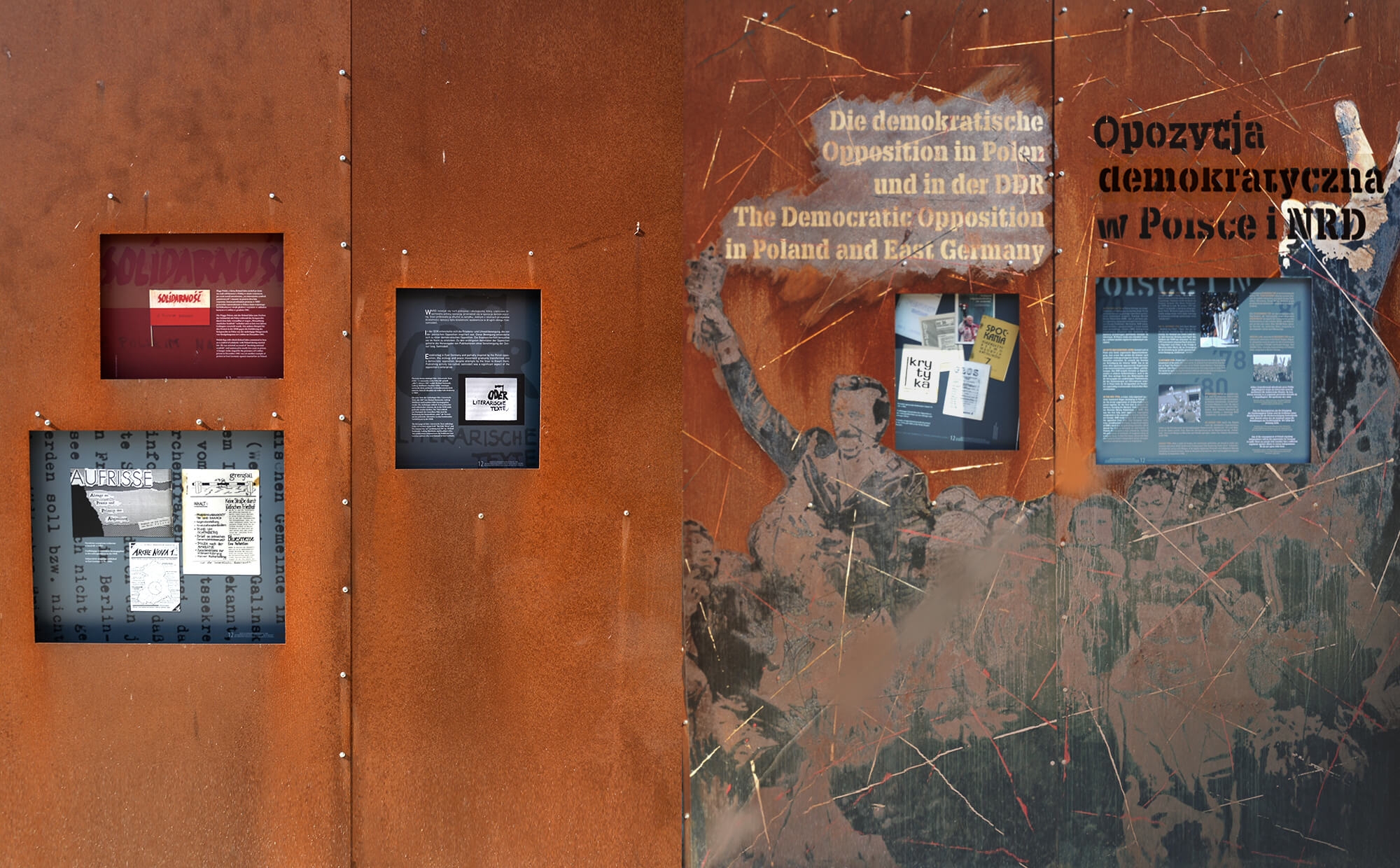Courage and
reconciliation
-
Pope John Paul II
The election of Polish Cardinal Karol Wojtyła as Pope John Paul II in 1978 gave hope to many Poles. In 1979, he traveled to Poland and spoke to hundreds of thousands of believers in Warsaw emphasizing the power of the Holy Spirit, which can bring about changes everywhere. This was understood as an encouragement for changes also in Poland. During the time martial law was implemented in Poland Pope John Paul II visited Poland and supported the opposition by meeting with the chairman of Solidarność (Independent Self-governing Labour Union “Solidarity”) Lech Wałęsa. The Catholic Church played an important role in supporting the opposition of the People's Republic of Poland. In the 1980s, the Catholic Church strongly criticized the martial law and demanded to respect the human and civil rights as well as the reintroduction of “Solidarność”, which is why it suffered from restrictions.
-
Solidarność (Solidarity)
In July 1980 price increases caused strikes in Poland. On 14 August the dismissal of Anna Walentynowicz, a crane operator of the Lenin Shipyard in Gdańsk, led to the founding of a strike committee led by Lech Wałęsa. The strikes rapidly spread all over Poland. The strikers demanded i.a. the re-employment of Walentynowicz, wage increases and the permission to set up an independent trade union, which means that in addition to economical demands also political demands were made. The government accepted several conditions and officially allowed Solidarność (eng. Solidarity) to be founded on 31 August 1980. Within a very short period of time, about 10 million people joined Solidarność and the union became a social mass movement. Between 1982 and 1989 Solidarność was banned and continued illegally its oppositional work. In addition to workers, also clerics and intellectuals were members of Solidarność, among them Tadeusz Mazowiecki. From 1980 he became a consultant to Solidarność and was one of their representatives during the round table discussions in 1989. With Mazowiecki a member of Solidarność became the first non-Communist Prime Minister of Poland after the WW II.
-
Martial law in Poland
The socialist state apparatus, with General Wojciech Jaruzelski at the head, imposed martial law from December 1981 to July 1983 in order to preserve his power and to push back the Solidarność. Martial law was connected with the restriction of freedom of movement and assembly, the closure of universities and schools, the occupation of public offices, broadcasting and television by the military and the closure of borders. Several thousand opponents were detained, including the leadership of Solidarność i.a. Lech Wałęsa and Tadeusz Mazowiecki. Solidarność was banned on 8 October 1982.



